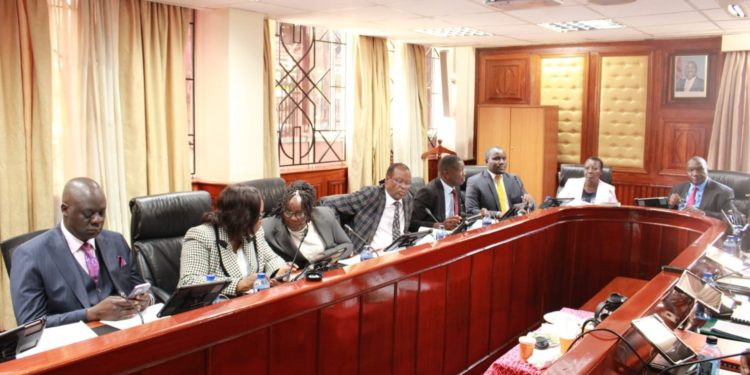Executives from social media app TikTok and its Kenyan content moderation partner Majorel faced a grilling from Kenyan lawmakers on Wednesday over the platform’s efforts to curb the spread of harmful content.
The appearance before the National Assembly’s Public Petitions Committee came in response to a petition filed by the CEO of Bridge Connection Consulting Group, Ben Ndolo, seeking to ban TikTok in the country. Ndolo alleges the platform threatens Kenya’s cultural and religious values by promoting violence, explicit sexual content, hate speech and offensive behavior.
“In the last year, we have taken down over 296,000 videos from Kenya alone,” TikTok’s Public Policy and Government Relations Director, Fortune Mgwili Sibanda, told the committee. He said 95% of content on the app is filtered by AI programs using internationally-set policy standards, with the remaining 5% reviewed by human moderators familiar with Kenyan culture and languages.
Sibanda said globally, 96.7% of harmful content is removed before being reported, and 77.1% is taken down before gaining any views. “We will be the first to admit that we are not perfect, and that we are constantly investing in ways to ensure that the one percent of content that slips through the gaps is also stopped,” he added.
However, lawmakers were unconvinced. Mbeere South MP Nebert Muriuki questioned whether TikTok’s moderation system was effective for Kenya’s diverse dialects. “What you are doing is simply not enough. Your AI and moderating formula is not built to work effectively in Kenya,” he said. “How is your system going to decipher content that is spoken in different dialects such as Ki-Meru?”
Majorel Kenya, the firm hired by TikTok to provide moderation services in the country, informed the committee it has 250 local employees dedicated to the task. But Majorel CEO Sven De Cauter struggled to explain why harmful content continued to reach users.
The committee has now requested further data from both TikTok and Majorel before producing a report on the petition to ban the app. The outcome could have significant implications for TikTok’s operations in Kenya, a key market in East Africa.


















